Content from the Brookings Doha Center is now archived. In September 2021, after 14 years of impactful partnership, Brookings and the Brookings Doha Center announced that they were ending their affiliation. The Brookings Doha Center is now the Middle East Council on Global Affairs, a separate public policy institution based in Qatar.
On January 5, Saudi Arabia, Bahrain, the United Arab Emirates (UAE), and Egypt ended their three-and-a-half-year blockade of Qatar. The Al-Ula Declaration, signed during the 41st Summit of the Cooperation Council for the Arab States of the Gulf (GCC), has led to the resumption of travel and trade between Qatar and the blockading countries. It is hoped that further discussions will lead to the full normalization of diplomatic and commercial relations.
In key ways, the blockade bolstered Qatar’s economy. This can be a positive development for regional integration. Stronger individual states will strengthen the region as a whole. Now that the blockade is lifted, the summit communique envisions greater military, foreign policy, and economic integration among GCC member states — integration for which the region is now better positioned. How will this be achieved? How will the blockade experience inform integration efforts? How can the GCC become a more effective institution? The long-term success of integration efforts will require GCC states to work together as equal partners, agree on common objectives, and strengthen their multilateral institutions.
Qatar becomes more independent
Frictions between Qatar and its Gulf neighbors are not new, but the 2017 blockade represented a more forceful effort by Riyadh and its allies to check Qatar’s independent foreign policy, which is what ultimately prompted the blockade. This policy included support for the Muslim Brotherhood, a political Islamist movement that had been branded a terrorist organization by the four blockading countries; maintaining economic ties with Iran, with whom Qatar shares its largest natural gas field; and sponsorship of the Al Jazeera Media Network, which was highly critical of other countries, as well as ideologically supportive of the Muslim Brotherhood and the popular protests and uprisings of the Arab Spring.
However, the blockade had the perverse effect of pushing Qatar to become even more independent of the GCC. Qatar strengthened its economic and political ties with Turkey, a regional rival to Saudi Arabia and the UAE and supporter of the Muslim Brotherhood. Out of necessity, Qatar also developed closer commercial ties with Iran, as Iranian airspace became a crucial corridor for Qatar to access the rest of the world. Although it became less ideological, Al Jazeera continued to cover stories critical of its neighbors, including the 2018 murder of Saudi journalist Jamal Khashoggi in the Saudi embassy in Istanbul.
Qatar also became economically disengaged from Saudi Arabia, the UAE, and Bahrain. The purpose of the blockade was to apply economic pressure on Qatar. Before the blockade, Qatar had imported much of the goods and services it consumed through its neighbors. After the blockade, Qatar was forced to quickly develop alternative supply routes, scale up domestic production of basic goods and services, and expand its Hamad Sea Port, which had begun operations in early 2017. While this involved substantial short-run economic costs to Qatar, it also helped it become more self-sufficient and kick-started the country’s economic diversification efforts. For example, Qatar went from being dependent on milk and dairy products imported from Saudi Arabia to being largely self-sufficient. Businesses in Saudi Arabia, the UAE, and Bahrain lost access to a market that, although was not large, provided high profit margins.
Qatar has become more independent. After the declaration, Sheikh Mohammed bin Abdulrahman Al-Thani, Qatar’s minister of foreign affairs, indicated that his country would not downgrade its economic and political relationship with Turkey or commercial ties with Iran. Qatari businesses are looking to trade with their neighbors, not just import and invest. In the context of regional integration, these are positive developments. Greater independence is a necessary step towards real integration and interdependence. Qatar can bring to the table a stronger network of international relations, as well as diversified supply routes, products, and services produced within its borders. A more balanced trade relationship between Qatar and its neighbors can take place to greater mutual benefit.
Why independence is good for integration
GCC countries do have common security, military, and foreign policy concerns that require strong regional coordination. The countries have extremist elements at home and have individually developed strong security systems to monitor and neutralize possible threats to their stability. They are wary of Iran’s military strength and regional ambitions, as three GCC countries — Kuwait, Bahrain, and Saudi Arabia — have sizable Shia populations and accuse Iran of stoking sectarian tensions. They also have similar foreign policy concerns, such as the relationships with their migrant workers and their countries of origin, in addition to trade agreements with Europe, China, and other Asian economies. However, for countries to contribute substantively to an integrated regional security framework, they need to have strong security sectors, militaries, alliances, and networks of their own to bring to the table.
Likewise, GCC countries all face economic pressures from declining hydrocarbon reserves and revenues. They differ with respect to the timeframe of this decline, but all of them must deal with this challenge. A few months before the coronavirus pandemic, the International Monetary Fund published a report that projected that most GCC countries could exhaust their financial wealth within 25 years. The pandemic and resultant lower prices of oil have no doubt moved this timeline forward. The pandemic itself has also demonstrated the importance of regional integration around health policy and response. The way forward for GCC countries is to diversify and liberalize their economies. Regional economic integration can be especially helpful if countries can specialize in different sectors, commodities, and services that would permit gains from trade. To achieve this, they must develop and specialize on their own. Thus, successful regional integration requires individual countries to have stronger economic foundations.
Regional integration also requires countries to work together and to coordinate on foreign policy. Saudi Arabia in particular finds itself in a precarious foreign policy position. The war in Yemen has extracted a huge social, economic, and political toll; it is facing mounting criticism over its human rights record; and its efforts to contain Iran are a risk of faltering. The incoming Biden administration has signaled that it will take a tougher stance on Saudi Arabia than the Trump administration did. Qatar understands this and has signaled that it will co-operate on counterterrorism and security issues. While it does not want to give up its independent foreign policy, it is eager to reduce the pressure on other member states and support their policy priorities, including investing in their economies and suspending legal claims for blocking their airspace, currency manipulation, and other grievances.
The next step: Enabling institutions
The Al-Ula Declaration and GCC Summit were an important first step towards reconciliation; yet much work remains to be done. Indeed, reconciliation from the side of the blockading countries was driven primarily by Saudi Arabia in response to the prospect of a new Iran nuclear deal and its efforts to reduce international pressures ahead of the incoming Biden administration. Crown Prince Mohammed bin Salman, the de facto ruler of Saudi Arabia, was the face of the GCC summit and his warm embrace of Sheikh Tamim bin Hamad Al Thani, the Amir of Qatar, signaled the end of the blockade. While other blockading countries have followed suit in resuming travel and trade with Qatar, bilateral discussions regarding remaining issues are needed in order to re-establish full diplomatic and commercial ties.
All GCC countries would benefit from greater coordination and integration of security, foreign policy, and economic functions. This is what the summit sought to achieve. To prevent such efforts from impinging on their national interests and independence, member states should enhance the role of multilateral institutions that support regional integration and coordination, especially the GCC. It is indicative that mediation efforts to resolve the blockade were driven by Kuwait. Even though the Gulf Cooperation Council is represented at the highest levels of government through its Supreme Council, comprised of the heads of its member states, and its Ministerial Council, comprised of the foreign ministers of all the member states, as an institution, the GCC itself was barely visible. Gulf states should grant the GCC Secretariat more authority to pursue economic and foreign policy coordination efforts and even to play a more formal role in resolving regional disputes. In the end, GCC member states must work together to confront the economic, security, and foreign policy challenges they all face.
The Brookings Institution is committed to quality, independence, and impact.
We are supported by a diverse array of funders. In line with our values and policies, each Brookings publication represents the sole views of its author(s).

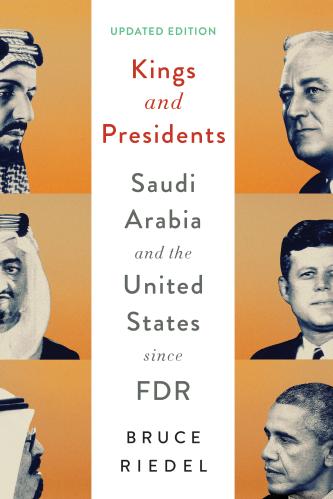
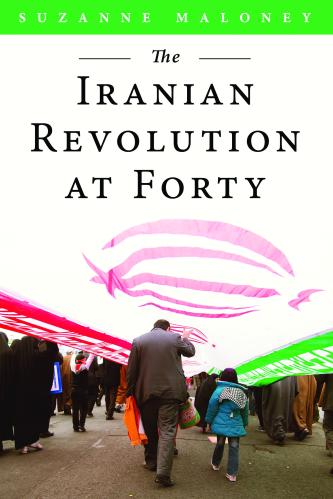
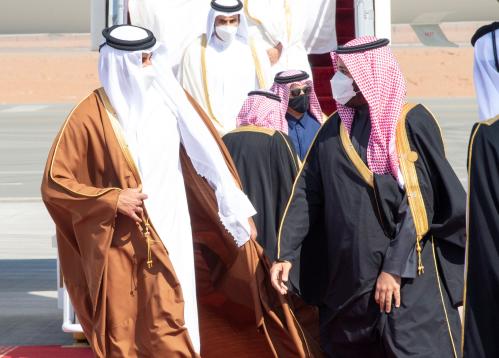
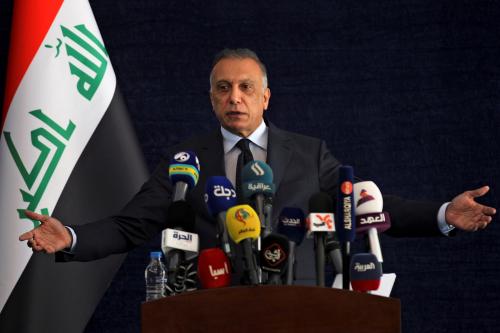

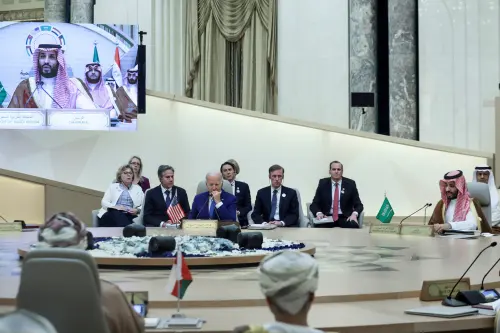
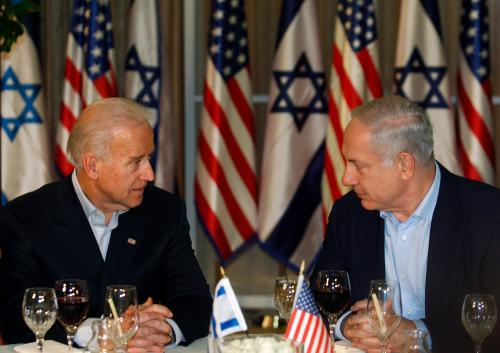
Commentary
The blockade on Qatar helped strengthen its economy, paving the way to stronger regional integration
January 19, 2021